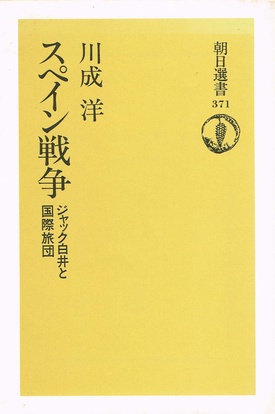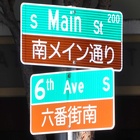Volunteering for the Foreign Legion
An event bigger than the COVID-19 news that is reported almost every day on the front pages has occurred: Russia's invasion of Ukraine. Some media outlets have described it as a "war," but this is a one-sided invasion and a genocide against the local people.
Since Russia invaded Ukraine on February 24, most of the world's public opinion has condemned Russia and offered various forms of support to Ukraine, including through nation-states, NGOs, and individuals, but the most direct form of support is volunteering to go to Ukraine and fight against the Russian army.
After the Russian invasion, the Ukrainian government called on former military personnel overseas to volunteer and join the Foreign Legion (foreign volunteers). In response, many people, mainly from Europe, volunteered, not only those with military experience but also those without, and according to a statement by Ukrainian Foreign Minister Kuleba on March 6, about 20,000 people had joined.
Reuters writes about the motivations of these applicants:
"Some of the foreign volunteers who arrived in Ukraine said they were attracted by the 'cause' - to stop Russian aggression in a showdown between democracy and autocracy that only happens once every few decades. Others volunteered because they felt the war in Ukraine would give them a chance to use combat skills that were no longer valued by their own government. Many of these volunteers are veterans of Iraq and Afghanistan." (March 9th)
Some countries have approved of going to Ukraine for combat purposes, but the United States has called for restraint. In Japan, it is said that about 70 Japanese, including former members of the Self-Defense Forces, applied to volunteer as foreign volunteers in response to a call for applications from the Ukrainian Embassy in Japan, but the Japanese government has called for restraint and not to volunteer.
Spanish Civil War Volunteers
I don't know if 70 people is a lot or a little, but they probably volunteered for a kind of "just cause." Japanese people volunteering as individuals to fight overseas with weapons. Has anything like this ever happened before? When I thought about this, the name that came to mind was Jack Shirai.
The Spanish Civil War is one of the earliest known examples of volunteer soldiers taking up arms to fight for the people of other countries. At that time, a Japanese man living in America named Jack Shirai fought in Spain as a volunteer soldier on the side of the Republican army, and was killed in the process.
The Spanish Civil War was a war started in July 1936 by the military and right-wing forces led by General Franco against the Spanish Republican Popular Front government, and lasted until March 1939. Britain, France and other countries took a non-interventionist stance in this civil war, while Germany and Italy supported Franco's army, the Soviet Union supported the Republican army, and the United States assisted Franco with supplies. Japan recognized the victorious Franco government.
During this battle, the Popular Front organized volunteer armies, and international volunteer units were also organized from overseas, their number said to be around 40,000.
It seems that it is not widely known that there were Japanese and Japanese-Americans among them, and I only learned about a man named Jack Shirai when I came across the book "The Spanish War: Jack Shirai and the International Brigades 1 " (by Hiroshi Kawanari, Asahi Sensho, 1989).
The author, an expert on Spanish history, follows in the footsteps of Jack Shirai and looks at the Spanish Civil War from the perspective of the volunteer army. Below, I will summarize Jack Shirai and the volunteer army from this book.
Of the Japanese volunteers who joined the Republican camp as volunteer soldiers, only "Shirai" is known by his last name in the records. There are records of two other Japanese (and Japanese-Americans) fighting, and it is said that there were two Japanese-Mexicans among the Mexican volunteer soldiers.
Shirai's detailed background is unknown. According to his own words, he was born in Hakodate, grew up in an orphanage, and landed in New York in 1929 during the Great Depression. He is believed to have sneaked out of the ship he was working on in New York Harbor and entered the country illegally. At the time, there were many people who entered or stayed in New York illegally, such as deserters, illegal immigrants, provisional immigrants, political refugees, students, or people who had abandoned their business licenses.
In New York, after working as a cook in various places, he worked at a Japanese restaurant called "Shima" in Greenwich Village at the time. He also obtained a bakery license to bake cakes and bread. The nameplate on the mailbox of the apartment where he lived until just before joining the war in Spain read "Baker, Jack Shirai."
After work at the restaurant, he would always drop by the Japanese Workers' Club on 2nd Avenue and 10th Street in downtown Tokyo. This was founded as an anti-war group for Japanese people. In the early days of the Communist Party of America, Katayama Sen and others used it as a base of operations.
When the Spanish Civil War began, Jack Shirai served as a private in the Lincoln Battalion, an American battalion of the 15th International Brigade, which was made up mainly of English-speaking volunteers. On July 11, 1937, during the Battle of Brunete, one of the decisive battles for Madrid, which was said to be the decisive battle of the civil war, he was shot in the neck by an enemy bullet during a fierce counterattack by Franco's army and died instantly. Shirai worked as a cook, but eventually fought as a machine gunner. He is estimated to have been 37 years old when he died.
One of Shirai's two subordinates who rushed to the scene upon hearing of his death held Shirai's head in his arms and cried, asking how Shirai could have died, when he had said that when the war ended and all three of them returned home safely, they would open a huge restaurant in New York, squeeze money out of rich people, and feed the poor for free.
According to social activist Ayako Ishigaki2 , who was in New York at the time and had contact with Shirai, there was an organization in New York called the "Japanese Association," and its staff would find men like Shirai, threaten to report them, and extort money from them.
Shirai must have suffered from discrimination both in Japan and within the Japanese community in New York, but in Spain he seemed cheerful and fulfilled every day. Based on detailed interviews with people who knew Shirai, Kawanari writes as follows:
This cheerfulness was not due to the anti-fascist fighting spirit that had led him to decide to join the war in New York, but rather to his positive determination to defend Spain, where he could confirm his presence, from the Franco army, which was "trying to return the country to the dark Middle Ages" (Tom Wintringham, "The English Battalion Commander", op. cit.). He was able to pin all his hopes on Spain.
One of the reasons why people move to other countries as immigrants is not only to seek money but also to seek something they have not had before. In other words, it may be that they are seeking a satisfying self-actualization.
Jack Shirai went from Hakodate to New York, and then from there to Spain in search of something more. The actions of the volunteers who are now heading to Ukraine may also be a reflection of the way each of us lives, in addition to our sense of justice and cause.
(Titles omitted)
Notes:
1. This book was later revised and published as "Jack Shirai and the International Brigades: Japanese who fought in the Spanish Civil War" (Chuo Bunko, 2013).
2. Ayako Ishigaki was friends with Jack Shirai and wrote "Olive's Gravestone: The Spanish War and a Japanese Man" (Rippoushobo, 1970), which was later published as "The Japanese Who Fought in Spain" (Asahi Bunko, 1989).
© 2022 Ryusuke Kawai







